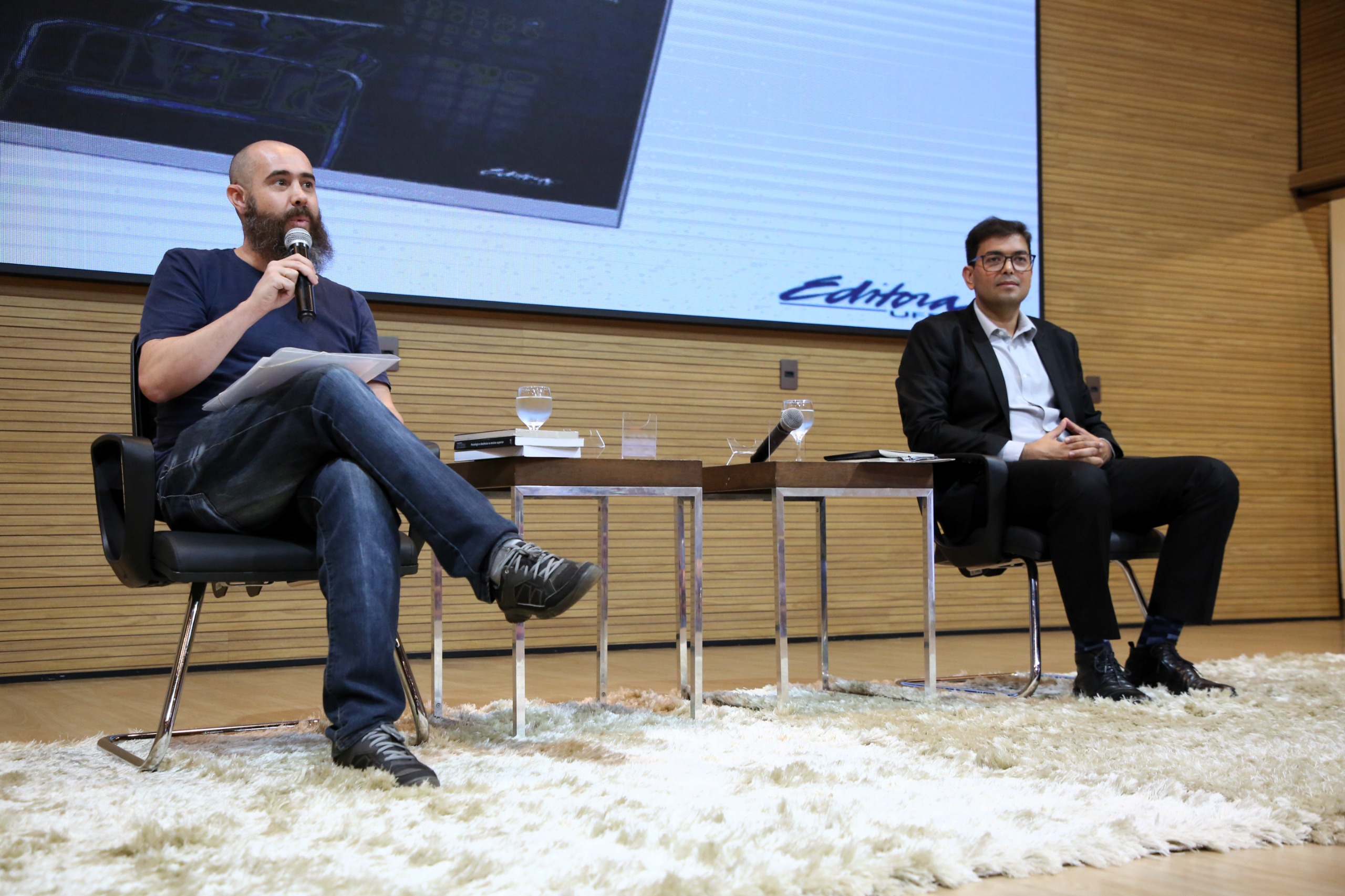
With a house full of professionals and university students from different areas, closed on Friday (August 30th), the Initial Training of Professionals for the Implementation of the Anti-Asylum Policy in the Justice System of the State of Tocantins. The event began on Wednesday (August 28th), in the auditorium of the Court of Justice of the State of Tocantins (TJTO), with the aim of providing moments of reflection and training about the theme on mental disorders, anti-asylum struggle, and relevant legislation.
The last class was on "Implementation of the Anti-Asylum Policy in the Justice System of the State of Tocantins" and it was opened by Judge Allan Martins Ferreira, coordinator of the State Interinstitutional Committee for Monitoring the Anti-Asylum Policy of the State of Tocantins (Ceimpa) and member of the Monitoring and Inspection Group of the Prison System (GMF), which made a historical report of its relationship with the theme and implementation of the policy within the Judiciary.
The magistrate recalled that the objectives of the anti-asylum policy are the defense of rights, deinstitutionalization and integral care. For the implementation of the Resolution no.o487/2023 of the CNJ, Allan Martins said that during the day was created the Inter-institutional Working Group on Mental Health in the Scope of the Judiciary; Protocol of Intentions with the INSS and the Public Defender’s Office of the Union for the granting of the Benefit of Continuous Provision (BPC) to 18 interned and support for the implementation of the Therapeutic Residence Service in the city of Palmas, training of professionals, the creation of Ceimpa and signing of the Cooperation Agreement.
The coordinator stressed that the anti-asylum policy is aimed at anyone with mental disorder, psychosocial disability, whether they are guarded, detained, being in provisional detention, preventive detention, in compliance with security measure, finally, all persons involved with the criminal law. "And not necessarily only those who the Judge came and said so: look, you are unaccountable, I will apply such a security measure. It may be that the person, even being considered imputable or to be imputable, has a mental suffering, some involvement with drugs on a greater or lesser scale, in time not to make him completely able to understand the illicit character of the acts he commits".
Allan Ferreira also noted that everyone needs to "put on the shirt" for the actions to work out and for there to be a transformation in the lives of people. He also warned that we must overcome prejudice. "I think that when we wear the shirt for real, we have the ability to transform our reality, at least around us. We have to get rid of prejudices. We, the mental health workers, the judiciary, the State Prosecution, the public defender’s office, social assistance must rid ourselves of any prejudice. We have to look at each other as a human being equal to us. They deserve respect, they deserve dignity."
Still in the closing class, the superintendent of Health Care Policies of Tocantins, Robson José da Silva, emphasized that the anti-asylum policy is an inter-institutional agenda and that the training, carried out during three days by the Judiciary, was a space of convergence and consensus. "Before we had no alignment and we had conflict, it doesn’t mean that we don’t have differences, but that we started to dialogue".
He also stressed that as the State Secretariat of Tocantins, the idea was not to bring a set of rules and regulations at this time. "Is to bring the process of reflection of all the workers who are here, thinking about, you have added, over these days, an intellectual capital from other intellectual capitals and experiences that are very rich, but we cannot leave this wealth to ourselves alone. Our challenge is to leave here provoked, go back to our places, our work spaces and say: 'now, how will I articulate everything that I saw in my territory?'. This is the challenge," he said, emphasizing that it is necessary more than sensitize, it must embrace the cause.
Also from the State Health Secretariat, psychologist Karla Joane da Silva spoke about the attributions of the Team for Evaluation and Monitoring of Persons with Mental Disorders in Conflict with the Law (PMS) and the relationship with the municipalities.
The first afternoon lecture was on "The role of technical teams and their assessments in security measures and deinstitutionalization process", taught by the Professor of Psychology at the Federal University of the State of Mato Grosso do Sul (UFMS), Thiago Bagatin, who also reported on his experience in a judicial asylum when he passed a public competition, resulting in the book of his authorship: "Judicial Asylum: the reclusion disguised of care".

The process of deinstitutionalization
Within this context, Bagatin highlighted that although the judicial asylums were considered as something advanced in the 1930s, as true laboratories for psychiatrists where important research was developed from these spaces, were, however, spaces of social segregation and that this reality can be changed, thanks to the advent of the Resolution n.o 487/2023 of the CNJ, which establishes the Anti-Asylum Policy of the Judiciary.
"The judicial asylum had the purpose of social defense, to segregate, to remove the "danger" brought by the potential of these subjects, from society. With the Resolution 487 it was possible to reverse this situation and gradually created a culture of participation, working with collective in the CAPSs - Centers for Psychosocial Care, an important instrument of deinstitutionalization for persons with mental disorders in conflict with the law", said Thiago Bagatin, highlighting the importance of a good situational and institutional diagnosis for definition of methods and techniques to be used in the process of deinstitutionalization of patients.

In the morning, the participants had the opportunity to discuss the topic on "The deinstitutionalization of the person deprived of freedom with mental disorder: reports of experience". The class had contributions from Melina Miranda, social worker and supervisor in the Department of Monitoring and Supervision of the Prison System and the System for the Execution of Socio-educational Measures (DMF); Shirley Alves dos Santos, social worker of the Service for Evaluation and Monitoring of Therapeutic Measures for Persons with Mental Disorder in Conflict with the Law of the State of Pernambuco; Carlos Gustavo da Silva Martin de Arribas, Psychiatrist technical advisor of the Management of Mental Health Care of the State of Pernambuco (Gasam); and Karla Joane da Silva, psychologist of the State Health Secretariat, who acted as co-teacher.




